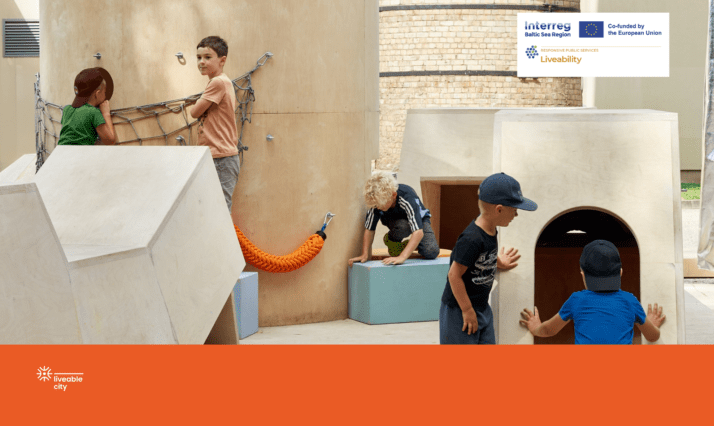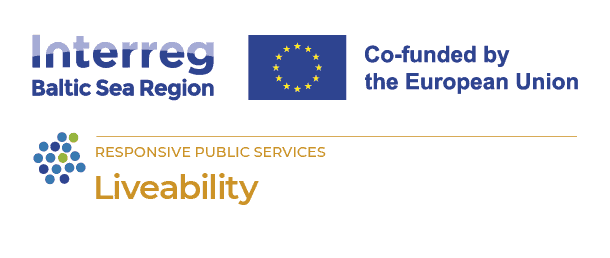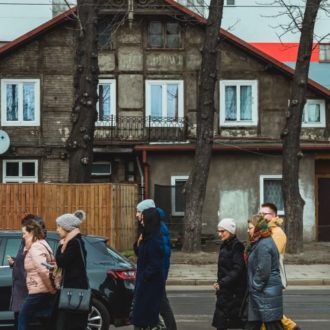Liveability

The Liveability project trains public administrations in innovative ways to engage people to create liveable and attractive city environments that adapt to people’s needs.
Cities face complex social, environmental, and economic challenges, including social inequalities, impacts of climate change, and demographic changes. The necessary transformations should be geared to the interests of the citizens. To this end, city governments need a systemic understanding, innovative ways of thinking and unconventional approaches.
This is where the Liveability project comes in with eleven partner organisations in six European cities with the help of Public Interest Design (PID). Liveability supports the cities in this process with a “PID Capacity Building Program”. The project aims to make public services and planning processes more inclusive, responsive and sustainable. The aim is to promote the participation of civil society in the design of administration in order to jointly develop ideas for the urban life of the future and to make the city more livable.
DCI has been working in the fields of culture and sustainability for the past 15 years, and is well-connected with organisations and networks relevant to these topics at BSR, European, and global scales. DCI acts as facilitator of knowledge transfer in Liveability. With a strong focus on the role of culture and cultural institutions in societal transformation DCI aims to contribute to the development of the network of “liveable cities”. As part of the project DCI, in cooperation with the lead partner, is organising the Liveability Talks series – monthly live or online discussions with city leaders, activists, and researchers, who address pressing urban challenges and share innovative solutions.
The project is working for the program goal “Responsive Public Services” of the EU INTERREG Baltic Sea Region Programme and has received a funding commitment for a period of three years (01.01.23 – 31.12.25). The project is lead by Heinrich Böll Foundation Schleswig-Holstein.
Read more about the project, current news and articles here.
Project partners:
- Heinrich-Böll-Foundation Schleswig-Holstein e.V. (DE)
- City of Kiel (DE)
- Danish Cultural Institute (DK)
- Business Kolding (DK)
- Guldborgsund Municipality (DK)
- City of Pori (FI)
- Riga City Council (LV)
- City of Gdynia (PL)
- Gdansk University of Technology (PL)
- Nextlearning e.V. (DE)
- Estonian Academy of Arts (EST)
Read more about the project, current news and articles here.
Lead partner project manager: Andrea Cederquist, Heinrich-Böll-Foundation Schleswig-Holstein, cederquist@boell-sh.de.
DCI project manager: Žanete Eglīte, ze@danishculture.com.
DCI communication manager: Andra Jakoviča, aj@danishculture.com.


